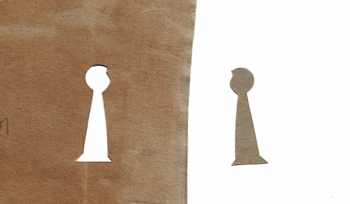Submitted by jhortolani on
NAMIBIA
Title:
State v. Tcoeib
Court:
Supreme Court of Namibia
Citation:
(2001) AHRLR 158 (NaSC 1996)
Date:
6 February 1996
Instrument(s) Cited:
Constitution of Namibia, Preamble, Articles 6, 7, 8, 18, 25
Criminal Procedure Act 51 of 1977, Sections 276(1), 283 (1)
Prisons Act 8 of 1959, Sections 2(b), 61, 64, 67
Case Summary:
Background:
The appellant, who was approximately 25-years old, was convicted of murdering two members of his employer’s family after a dispute with his employer. He was sentenced to life imprisonment with eligibility for parole or probation after serving 18 years. The appellant appealed to the Supreme Court of Namibia claiming that a sentence of life imprisonment was unconstitutional.
Issue and resolution:
Life imprisonment. Whether life imprisonment is in line with the Constitution of Namibia and sufficiently respect human dignity. The Court held that life imprisonment could be unconstitutional, however, because the release scheme under Namibia laws sufficiently provided for the release of a prisoner after a prescribed time period, life imprisonment under such circumstances was not unconstitutional. The appeal was therefore dismissed by the Court and the conviction and sentence of the appellant confirmed.
Court reasoning:
The Court argued that incarcerating a person for the rest of their natural life cannot be justified if it amounts to irreversibly removing any prospect of release, regardless of any circumstances which might subsequently arise. The Court held that a life imprisonment sentence must allow for such changes in circumstances to be taken into account, such as, among other things, evidence which shows that the offender has reached such an advanced age or is so repentant about his or her past that continuous incarceration of the offender at the State’s expense constitutes a cruelty which can no longer be defended in the public interest. The Court found that Namibia’s scheme for the release of prisoners sentenced to life imprisonment sufficiently protected their rights.
Notes:
The case has been cited by numerous judicial decisions and academic articles to support the idea that the hope of release from prison must be inherent in statutory mechanisms governing sentences of life imprisonment.
For more information on the issue of inhuman sentencing of children, including a selection of case law, please see CRIN's 'Inhuman sentencing' campaign.
Link to Full Judgment:
http://www.chr.up.ac.za/index.php/browse-by-subject/376-namibia-state-v-tcoeib-2001-ahrlr-158-nasc-1996.html
This case summary is provided by the Child Rights International Network for educational and informational purposes only and should not be construed as legal advice.

